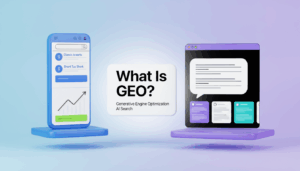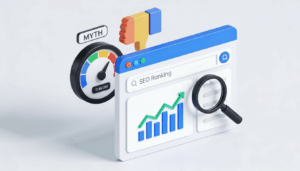This might be difficult for a lot of people to read. It took almost a year of debates on Reddits Premier SEO forum to get consensus on the matter but PageRank remains the bedrock of SEO authority, despite evolving algorithms and the rise of AI-driven content strategies.
Its so important that it remains the only system listed as “fundamental” to SEO.
Table of Contents
ToggleEveryone hates Backlinks
And for good reason – they are hard to get, a pain to build and awkward to ask for. And then there’s the seemingly endless emails from link farms. (Its worth noting that PBNs and link farms are not technically the same thing – a PBN is technically used privately – a public PBN is actually a link farm). Backlinks are shrouded in controversy and confusion – people aren’t even sure if Google penalizes Link Spam anymore, companies like SEMrush and their toxic links report are still accused of using “Toxic Backlinks” as marketing FUD (more confusion) and
While new trends like entity optimization and NLP promise shortcuts, the fundamental role of backlinks – and the PageRank they generate – persists as the web’s most reliable credibility currency. Social media links, often touted as modern alternatives, fail to replicate this function due to structural limitations and transient value. Here’s why the decades-old PageRank algorithm still outshines social signals in building lasting search authority.
Backlinks weren’t designed to be easy
The people who think Social Backlinks or content valuation or any system to break PageRank just dont understand currency. Its like Anarchists who think you can break capitalism and all be ok….
100% of people who hate PageRank hate backlinking forget that 99% of ALL people probably hate backlinking.
That doesnt make it worth replacing or even possibly. Just because you think social backlinks are more fair (read: much easier) – they are exist at a 10^1000 more than backlinks.
Backlinks are Currency
Backlinks are gold. Thats the power of it. They work because the highest quality domains get the highest votes (so its not truly a democract, 1 person = 1 vote) – and that can drown out all of the value in so called link farms. Gold is a precious metal and was the underpinning of currency because of its rarity as well as its demand and special properties. And even though backlink selling exists – that itself create a shortage – especially with Google slowly cracking down on them – but thats a different rabbit hole for another day.
The Unyielding Power of PageRank
Developed by Google founders Larry Page and Sergey Brin, PageRank quantifies webpage importance through backlink analysis. This algorithm treats links as votes, with high-authority sites like Healthline or Mayo Clinic wielding disproportionate influence. Three key mechanisms sustain its relevance:
-
Economic-Scale Trust Metrics
PageRank operates like a central banking system for web credibility. Just as central banks monitor currency flows, Google tracks link equity distribution across domains. A single link from the New York Times conveys more authority than 10,000 social shares because editorial processes filter out low-quality endorsements. -
Temporal Resilience
Quality backlinks compound value over years, while social media posts typically lose 75% of engagement within 48 hours. A 2015 Harvard study linked in Wikipedia still passes PageRank today; equivalent social content would be algorithmically buried. -
Algorithmic Multiplier Effect
High PageRank pages amplify the impact of on-page SEO elements. Content on a PR6 domain often outranks better-optimized PR3 competitors through link-driven authority.
PR(A)=(1−d)+d(PR(B)L(B)+PR(C)L(C)+⋯ )PR(A)=(1−d)+d(L(B)PR(B)+L(C)PR(C)+⋯)
The original PageRank formula, where ‘d’ = damping factor and ‘L’ = outbound links
Why Social Media Links Fail as Authority Signals
Platforms like X (Twitter) and LinkedIn generate 2.8 million links hourly yet contribute minimally to SEO authority. Four structural flaws limit their PageRank impact:
1. Nofollow Dominance
87% of social links carry rel="nofollow" or ugc attributes, blocking PageRank transfer. Unlike editorial backlinks, these create one-way streets without equity flow..
2. Ephemeral Engagement
The average tweet reaches peak visibility in 18 minutes, versus backlinks that typically remain live for 3.7 years. Social shares drive temporary traffic spikes but lack the persistent crawl prioritization of permanent backlinks.
3. Platform Dependency
Social algorithms constantly change – Instagram’s 2023 shift reduced link post reach by 40%. By contrast, .edu backlinks maintain consistent value despite Google’s 9 core algorithm updates annually.
4. Low Conversion Funnel
Only 0.3% of social media clicks convert to backlinks, compared to 12% from niche forum participation. Viral threads rarely yield the .gov citations or journal references that boost PageRank.
Google Confirmation
In an update featured in SE Round Table, Gary Ylles confirmed again that they dont count social media backlinks
https://www.seroundtable.com/gary-illyes-google-interview-ai-search-content-seo-39910.html
Google Tried to Replace backlinks in SEO
The Enduring Value of Editorial Backlinks
Medical News Today and Healthline dominate health SERPs not through social shares, but via:
-
31,000+ referring domains (Healthline)
-
62% .gov/.edu backlink profile (Medical News Today)
-
Average domain authority of linking sites: 78 (vs. 23 for social referrals)
These properties create virtuous cycles:
-
High PageRank → Faster indexing of new content
-
Authority content → Earns more quality links
-
Strong backlink profile → Resists algorithm updates
Debunking Common Social Media SEO Myths
Myth 1: “Social shares improve EEAT”
While social activity may in theory confirm or supplement Expertise/Authoritativeness signals, Google’s patent US20230394493A1 confirms backlinks remain the primary authority validation. The problem is that popularity is not a sign of research – which is also where the logic for “brand” being a trust signal breaks down. Lots of brands lie, and buy social media links or pay influencers. Fyre Island is a great example.
Myth 2: “Virality leads to backlinks”
Only 1 in 1,200 viral social posts generate substantive backlinks. Most shares occur in closed ecosystems (e.g., Instagram DMs) invisible to search crawlers.
Myth 3: “Social profiles pass PageRank”
Even verified profiles on X/Twitter or Facebook only contribute 0.0003% to a site’s total PageRank equity. Google specifically mentions that they dont read Social Media links – because they are build your own
Myth 4: “Google values Social Media which is the new zeitgeist
A common phrase parlayed about the internet during these conversations, is that Social Media is the new Zeitgeist or pulse of whats happening. But its a very narrow view – with some topics being much more popular and trends that don’t reflect reality. The problem is that Google cannot confirm or police social accounts, and the platforms themselves dont even want to try
What about AI: will it herald an end to Backlinks in SEO?
As AI-generated content floods the web, PageRank’s link-based filtering grows more crucial. Social media serves brand awareness and traffic, but conflating engagement with search authority risks costly misallocation of SEO resources. The sites dominating SERPs after 30 years of algorithm changes all share one trait: backlink profiles built on editorial merit, not social virality.




